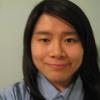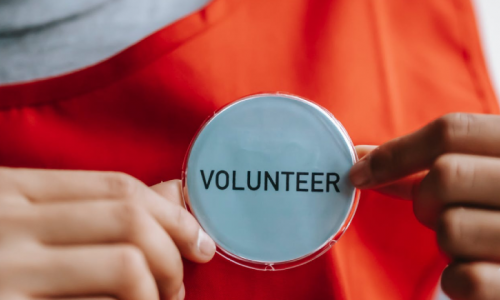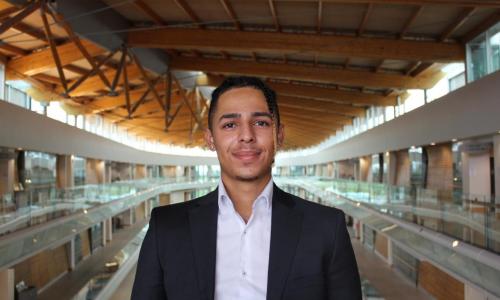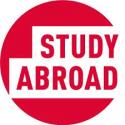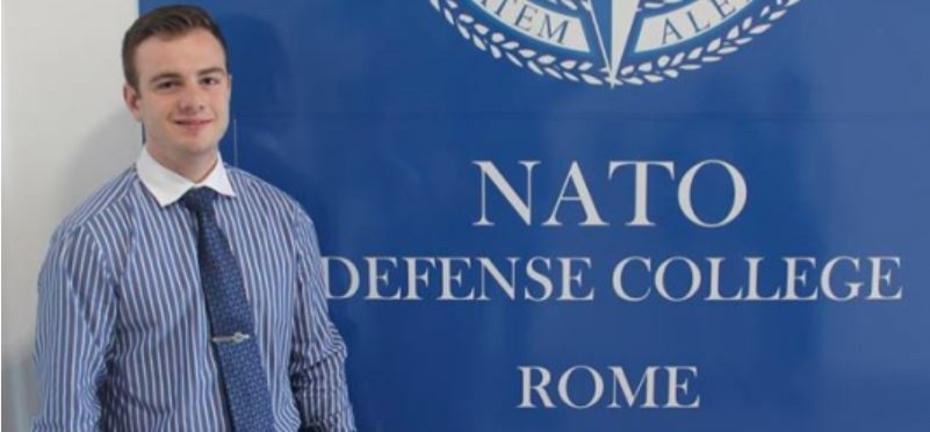
I had the opportunity to interview the co-founder of SFU NATO Club, and Political Science undergrad, Cornel Turdeanu. The SFU North Atlantic Treaty Organization (NATO) Club prepares members to participate in model NATO conferences in Washington DC and Ottawa. Cornel was part of the organizing committee for the 2017 NATO Summer Field School; a field school convened through SFU International Services for Students, which offered applied learning and directed practice in the areas of national security and defence, as well as international cooperation and diplomacy. As Cornel prepares himself for a new beginning and the end to his undergraduate career, he reflects upon his involvement with SFU Model NATO Club and recent NATO Summer Field School, which took place at NATO Headquarters in Belgium and NATO Defense College in Rome.

I’m studying Political Science, in particular, the Defence, Diplomacy and Development stream. I’m currently in my last year of undergraduate studies. This semester, I am doing a co-op work term at the US Consulate General in Vancouver, in the Political-Economic Section. The co-op at the US Consulate has been an amazing experience, which I highly recommend to students who are really looking to enter the field of international relations.
What are your plans after graduating from SFU?
I will be applying to master’s degree programs at SFU and other schools in Canada and the US. The best-case scenario would be for me to start my MA in Political Science at SFU in Fall 2018. In the long run, I hope to work for Global Affairs Canada, the Department of National Defence, and one day at NATO either representing Canada or as part of its International Staff.
What inspired you to be a part of SFU NATO Field School this past summer?
I was inspired by NATO’s values of democracy, individual liberty and the rule of law. I think NATO has also been vital in keeping the peace in the Euro-Atlantic region since its founding in 1949. More recently, NATO has been the guarantor of democracy and stability for its Eastern European member states. In terms of actually being involved with the field school, I have been in charge of the organizational side of the field school since it started as just a concept on paper in the fall of 2016. Together with Jazlyn Melnychuk, I was named “student leader” by field school director Dr. Moens. This meant I was both a student of the field school, while also helping organize its logistical, budgetary, administrative, and teaching details.
Do you have any advice for students who are just starting out and are considering doing a field school?
I would advise any student interested in a career in international relations, foreign policy or defence to come to our field school. It is probably the best opportunity at SFU to gain hands-on experience in the field of international relations and to build your resume. If you want to gain experience with NATO simulations before the field school even begins, join the SFU NATO Club!

I learned that professionals in the fields of foreign policy and diplomacy are actually very open, and very happy to mentor and network with undergraduate students. I also learned a lot about how an organization like NATO effectively co-ordinates in an international crisis through a simulation we did at the NATO Defense College that is normally reserved for senior military officers and diplomats.
How did you get involved with SFU NATO Club?
Together with fellow SFU students, Sai Wong and Jazlyn Melnychuk, I started the SFU NATO Club in the Fall of 2015. I decided to do this after participating in a model NATO simulation in Latvia and winning an award for writing the best position paper in my committee. I wanted to bring the same level of international engagement for undergraduate students that I saw in Europe, to SFU.
I visited SFU Model NATO Club's website and saw that you were the president of the SFU NATO Club. Can you elaborate on what SFU Model NATO Club does?
We host monthly simulations of several of NATO’s decision-making bodies, such as the North Atlantic Council, the Military Committee, and the Operations Policy Committee. We use these simulations to train students who are interested in coming with us to international NATO simulations in Ottawa and Washington DC. We also hold speaker’s events and have hosted senior military and NATO officials at SFU.
What would you say to students thinking about joining SFU NATO Club?
I would recommend the SFU NATO Club to anyone who is looking to improve their public speaking and negotiating skills, as well as their knowledge of international affairs. I think students who join the SFU NATO Club also have an advantage when applying for the SFU – NATO Field School.
What do you think NATO's biggest challenges will be in the next 5-10 years?
I think NATO is navigating rough geopolitical seas currently. However, I also think NATO has been through a lot worse. It has been the most successful alliance in modern history and has proven to be very adaptable. In terms of challenges, I think countries in Europe and North America must work to continuously strengthen the transatlantic ties that bind them together, and not abandon this vital link that has been the cornerstone of global stability for the past 70 years. I also think all NATO member states must respect and adhere to the principles stated in the Washington Treaty, namely democracy, individual liberty, and the rule of law.

Japan and South Korea share the same democratic values that bind NATO member states together, and had NATO been a global organization they may have become full member states many years ago. However, due to their geographic location, they are only able to gain “Partner” status and not “Member” status. There are many cooperation activities available in the NATO Partnership Cooperation Menu to both South Korea and Japan, which can help strengthen their militaries and their defence ties to NATO in the long run.
On a separate note though, since South Korea and Japan share so many values and interests with NATO member states, I cannot imagine a situation where, if either of these two countries came under very serious military aggression most if not all NATO member states would respond strongly. Whether this would be done through a NATO framework or not is up for debate. NATO Secretary General, Jens Stoltenberg, has in the past strongly condemned North Korea’s actions, actions that threaten both Japan and South Korea, and officials from these countries have had discussions with NATO about the North Korean threat.
Beyond the Blog
-
To learn more about the annual SFU NATO Field School, visit this page.








